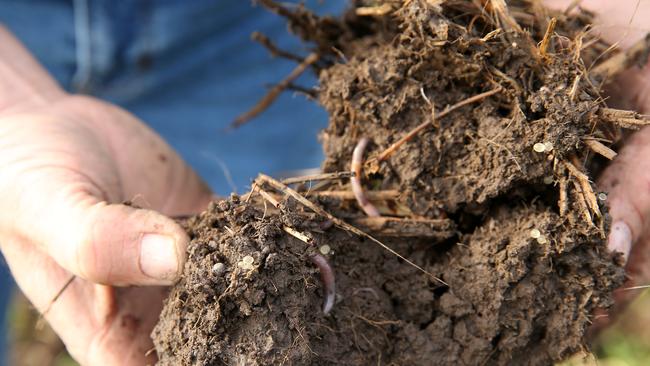Start-up claims soil carbon ‘breakthrough’
An Australian agri-tech start-up says its new product will help unlock vast tracts of cropping land to carbon projects.
Australian soil carbon start-up Loam Bio has landed a windfall $9.3 million government investment it hopes will help unlock vast tracts of agricultural land to carbon sequestration projects.
Minister for Agriculture Murray Watt announced the investment, made through the Clean Energy Finance Corporation, on Tuesday.
The money will go toward a technology Loam has dubbed the CarbonBuilder seed treatment, and will take the CEFC’s total investment in Loam to $15.1 million after an earlier pledge of $5.8 million.
Loam claims its seed treatment will allow farmers to build soil carbon in cropping systems — a task grains industry experts have previously argued was not viable for growers.
According to the company, the seed treatment was capable of building “between 3-6t CO2e per hectare per year, across a range of crops in replicated trials and pilots”.
As of Monday, Australian Carbon Credit Units were valued at about $35 per tonne, down from a high of $57/t last year.

Loam announced on Tuesday it had secured a total of $105 million through its Series B investment round, bringing its total investment to $150 million, and making it Australia’s most invested-in agritech start-up.
The Australian cropping industry, which manages one third of Australia’s agricultural land, has long been sceptical of carbon farming.
Research funded by industry group Grain Growers Ltd in 2021 found carbon markets “don’t stack up” financially for grains producers.
Cropping soils have, until now, been understood to store limited volumes of carbon compared to other agricultural systems, with the cost of soil testing, reporting, auditing and the risk of losing carbon out of the soil outweighing any potential benefit.
Loam co-founder and head of agronomy Guy Webb said product trials proved “growers can build carbon in cropping soils”.
The federal government’s goal of cutting emissions by 43 per cent by 2030 relies in part on carbon offsets through sequestration projects.





